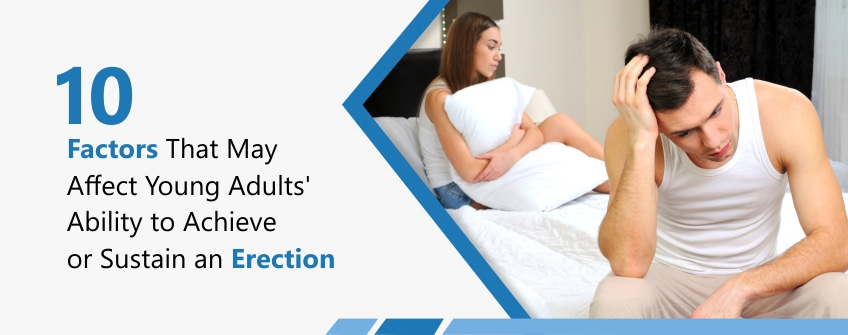Fildena Double Success Stories: Real Men, Real Results
- By admin
- Erectile Dysfunction
- 0 Comment
Erectile dysfunction (ED) is a common but often overlooked condition that affects millions of men worldwide. It can have a significant impact on a man’s self-esteem, relationships, and overall quality of life. Fortunately, there are effective treatments available, and one such medication that has been making waves in the ED treatment world is Fildena Double. In this article, we will explore real Fildena Double success stories, highlighting how this medication has helped real men regain their confidence and transform their lives.
Understanding Fildena Double: Fildena Double is a medication that contains the active ingredient sildenafil citrate, the same ingredient found in the well-known ED medication Viagra. Sildenafil citrate is a phosphodiesterase type 5 (PDE5) inhibitor, which works by increasing blood flow to the penis, thus helping men achieve and maintain erections when sexually aroused. Fildena Double is available in various strengths, allowing doctors to tailor the dosage to each individual’s needs.
Real Fildena Double Success Stories:
- James’ Journey to Renewed Confidence
James, a 45-year-old IT professional, had been struggling with ED for several years. He felt embarrassed and inadequate in the bedroom, which was putting a strain on his relationship with his wife. After consulting with his doctor, James was prescribed Fildena Double. He was initially skeptical but decided to give it a try. To his surprise, Fildena Double worked wonders for him. “It was like a miracle,” he said. “My confidence came back, and our relationship improved significantly.”
- Mark’s Fildena Double Experience
Mark, a 52-year-old construction worker, had been dealing with ED for over a decade. He had tried various treatments, including herbal remedies and vacuum devices, with limited success. Feeling frustrated, he decided to consult a urologist who recommended Fildena Double. Mark’s life took a turn for the better after using the medication. “Fildena Double has given me a new lease on life,” he shared. “I feel like a younger man, and my partner and I are happier than ever.”
- John’s Joyful Comeback
John, a 60-year-old retiree, thought ED was an inevitable part of aging. He had resigned himself to a life without intimacy until he learned about Fildena Double from a friend. With some hesitation, John tried Fildena Double, and the results were remarkable. “I can’t believe I waited so long to try this,” he exclaimed. “Fildena Double has given me back the pleasure I thought I had lost forever.”
- David’s Relationship Revival
David, a 35-year-old marketing executive, experienced ED due to work-related stress and anxiety. He was worried that it would ruin his relationship with his long-term girlfriend. After discussing his concerns with a therapist, he was prescribed Fildena Double. David’s relationship and self-esteem improved significantly. “Fildena Double helped me get my performance anxiety under control,” he said. “It saved my relationship and my self-confidence.”
Fildena Double has emerged as a beacon of hope for men struggling with erectile dysfunction. These real Fildena Double success stories highlight the life-changing impact this medication can have. It’s essential to remember that ED is a common medical condition, and there are effective treatments available. If you or someone you know is dealing with ED, consult a healthcare professional to explore suitable options, including Fildena Double, and embark on a journey to renewed confidence and improved quality of life.
10 Factors That May Affect Young Adults’ Ability to Achieve or Sustain an Erection
- By admin
- Erectile Dysfunction
- 0 Comment
Erectile dysfunction also referred to as ED, is a condition wherein a man struggles to achieve or sustain an erection that is firm enough for sexual intercourse. The condition affects men of all ages, but it is more common in older men. However, recent studies have shown that young adults in their 20s and 30s are also affected by this condition. Difficulty in sustaining an erection for a longer time, also known as erectile dysfunction (ED) or impotence, can affect men of all ages, including young men. There are various factors that can contribute to this issue, and it’s important to understand that occasional difficulty with erections is normal, but persistent problems may warrant medical attention.
Here are the ten factors that may affect young adults’ ability to achieve or sustain an erection.
- Psychological Conditions: Young men who suffer from depression, anxiety, and post-traumatic stress disorder (PTSD) may experience erectile dysfunction. These psychological conditions affect the mental state of an individual, and as a result, their ability to achieve or sustain an erection.
- Stressful Lifestyle: Poor lifestyle choices such as smoking, alcohol consumption, and drug abuse can lead to erectile dysfunction. These unhealthy habits cause damage to the blood vessels, which reduces blood flow to the penis, hence causing erection problems.
- Medications: Certain medications used to treat depression, high blood pressure, and other health conditions can cause erectile dysfunction. If you are experiencing erection problems and are taking medications, consult your healthcare provider for information on the possible side effects.
- Poor Diet: A diet that is high in fat, sugar, and processed foods can lead to obesity, high blood pressure, and other health conditions that can cause erectile dysfunction. A healthy diet rich in fruits, vegetables, and whole grains can help prevent erection problems.
- Lack of Exercise: Young adults who don’t engage in physical activity and regular exercise may develop erectile dysfunction. Exercise improves blood flow, reduces stress, and promotes overall physical health.
- Hormonal Imbalances: Testosterone is a hormone that plays a critical role in sexual function. If the levels of this hormone are imbalanced, it can lead to erectile dysfunction.
- Neurological Disorders: Conditions such as Parkinson’s disease and multiple sclerosis can affect the nervous system, causing erectile dysfunction.
- Pelvic Injuries: Young men who have experienced injuries to their pelvic region may experience erectile dysfunction.
- Sleep Apnea: Sleep apnea is a condition wherein a person experiences breathing difficulties while they sleep. The condition leads to decreased oxygen supply, which can cause erectile dysfunction.
- Relationship Problems: Relationship problems can affect a person’s ability to achieve or sustain an erection. Stressful or painful situations that cause tension in a relationship can lead to sexual problems.
Young men are not exempt from erectile dysfunction. It is crucial to understand the factors that may contribute to this condition and take appropriate measures to prevent or manage it. Maintaining a healthy lifestyle, seeking medical attention, and being open and honest in relationships can help young adults prevent or manage erectile dysfunction. If a young man is experiencing difficulty sustaining erections, it’s important to consult a healthcare professional or urologist. They can perform a thorough evaluation to determine the underlying cause and recommend appropriate treatment options. Treatment may include addressing any psychological issues, making lifestyle changes, managing underlying medical conditions, or using medications like phosphodiesterase type 5 (PDE5) inhibitors (e.g., Viagra, Cialis) under medical supervision.
How to Reduce the Risk of ED and Improve Quality of Life
- By admin
- Erectile Dysfunction
- 0 Comment
Are you looking to reduce the risk of erectile dysfunction (ED) and improve your quality of life? If so, you’re in the right place. In this article, we will explore effective strategies to help minimize the chances of developing ED and enhance your overall well-being.
Understanding Erectile Dysfunction (ED)
Erectile dysfunction, commonly referred to as ED, is the inability to achieve or maintain an erection sufficient for sexual intercourse. It can affect men of all ages and can have a significant impact on their confidence, relationships, and overall satisfaction. While occasional difficulties in achieving an erection are normal, persistent or recurrent issues may require attention.
Factors contributing to ED
Various factors contribute to the development of ED. One of the primary causes is poor blood flow to the penis. Conditions such as obesity, high blood pressure, and diabetes can impair blood circulation, making it difficult to achieve and sustain an erection. Additionally, certain medications, such as those used to treat high blood pressure or depression, can have side effects that result in ED.
Psychological factors can also play a role in ED. Stress, anxiety, and depression can interfere with sexual performance and contribute to difficulties in achieving or maintaining an erection. Relationship problems and a lack of emotional intimacy can also impact sexual function.
The impact of ED on quality of life
ED can have a profound impact on a man’s quality of life. It can lead to feelings of inadequacy, frustration, and even depression. The inability to perform sexually can strain relationships, leading to decreased intimacy and communication. Additionally, ED can negatively affect self-esteem and overall well-being, causing men to withdraw from social and sexual activities.
Lifestyle changes to reduce the risk of ED
Making certain lifestyle changes can significantly reduce the risk of developing ED. One crucial aspect is maintaining a healthy diet. A diet rich in fruits, vegetables, whole grains, lean proteins, and healthy fats can promote cardiovascular health and improve blood flow, which is vital for healthy sexual function. Avoiding excessive alcohol consumption and quitting smoking can also contribute to overall better health and reduce the risk of ED.
Regular exercise is another essential component in reducing the risk of ED. Engaging in physical activity improves cardiovascular health, helps maintain a healthy weight, and promotes optimal blood flow to all parts of the body, including the penis. Aim for at least 30 minutes of moderate-intensity exercise most days of the week to reap the benefits.
Diet and exercise for ED prevention
A diet that supports erectile health should focus on foods that improve blood flow and promote overall cardiovascular health. Incorporate foods rich in antioxidants, such as berries, leafy greens, and nuts, which can help protect blood vessels and maintain their elasticity. Omega-3 fatty acids, found in fatty fish like salmon and tuna, can also promote healthy blood flow.
Regular exercise can improve erectile function by enhancing blood flow and reducing the risk of obesity and other health conditions that contribute to ED. Engage in aerobic exercises like jogging, swimming, or cycling to get your heart rate up and improve cardiovascular health. Strength training exercises can also be beneficial, as they help build muscle and improve overall body composition.
Stress management techniques for ED prevention
Stress is a common factor that can contribute to ED. Finding effective stress management techniques can help reduce the risk of developing ED. Engaging in activities that promote relaxation, such as meditation, deep breathing exercises, or yoga, can help lower stress levels and improve overall well-being. Additionally, setting aside time for hobbies, spending quality time with loved ones, and seeking support from friends or a therapist can also help manage stress and reduce the risk of ED.
The role of sleep in reducing the risk of ED
Adequate sleep is essential for overall health, including sexual function. Poor sleep quality or insufficient sleep can contribute to hormonal imbalances, increased stress levels, and decreased energy levels, all of which can impact sexual performance. Aim for 7-9 hours of quality sleep each night to support optimal sexual health.
Seeking professional help for ED
If you are experiencing persistent difficulties with achieving or maintaining an erection, it’s essential to seek professional help. A healthcare provider can evaluate your symptoms, identify any underlying medical conditions or medications that may be contributing to ED, and recommend appropriate treatment options. They may suggest lifestyle changes, prescribe medications, or refer you to a specialist if necessary.
Alternative treatments for ED
In addition to conventional medical treatments, several alternative therapies may help improve erectile function. Some men find acupuncture, herbal supplements, or certain exercises like pelvic floor muscle training beneficial in managing ED. However, it’s crucial to consult with a healthcare professional before trying any alternative treatments to ensure they are safe and effective for your specific situation.
Conclusion: Taking control of your health and improving quality of life
By taking proactive steps to reduce the risk of ED, you can prioritize your sexual health and maintain a fulfilling intimate life. Understanding the factors contributing to ED, making lifestyle changes such as improving diet and exercise habits, managing stress effectively, and seeking professional help when needed can all play a significant role in reducing the risk of developing ED and improving overall quality of life. Remember, it’s never too late to take control of your health and well-being.
Remember, it’s never too late to take control of your health and well-being. By implementing the strategies discussed in this article, you can optimize your sexual health, boost your self-esteem, and reclaim control over your quality of life. Start making positive changes today and enjoy a healthier, more fulfilling future.
Reviving Masculine Vitality: Sildenafil’s Power against Impotence
- By admin
- Erectile Dysfunction
- 0 Comment
An Overview of Erectile Dysfunction
- Erectile dysfunction (ED) is also known as male impotence or simply as impotence
- Men are said to suffer from Erectile dysfunction if he is persistently not able to achieve or maintain a firm and strong erection of the penis for a longer duration of time during sexual intercourse.
- The treatment of erectile dysfunction depends on the cause which can be physical or psychological.
Sildenafil citrate
- Sildenafil citrate was the first PDE-5 inhibitor approved for treating ED in the year 1998 by the Food and Drug Administration (FDA).
- Post six months of its approval by FDA, millions of prescription were written for Sildenafil citrate.
- It belongs to class of drugs known as phosphodiesterase type 5 (PDE-5) inhibitors
- It is a potent PDE-5 inhibitor.
- Sildenafil citrate is a prescription based drug.
- Sildenafil Citrate is not a habit forming drug.
Mechanism of Action
The enzyme PDE-5 is present in large amount inside penis. The sildenafil citrate enhances the levels of the cGMP by inhibiting its degradation by phosphodiesterase type 5 enzyme. The functions of cGMP are relaxation of smooth muscles and dilation of blood vessels inside the penis. The dilated blood vessels increase the blood flow to the penis. This increased blood flow to the penis produces a firm and strong erection of the penis for satisfactory sexual intercourse.
Onset of action and Duration of effect
The time it takes for the medicine to take effect can vary among patients. On average, the duration of its effect lasts for approximately 4 hours.
Dosing Instructions
- The usual recommended dose of Sildenafil citrate is 100mg daily.
- This medicine is to taken with a glass of water 45 to 60 minutes before sexual intercourse.
- You can take this medicine with or without food.
- Do not exceed the dose and duration of the treatment with this medicine than advised by doctor.
Precautions and Warnings
- Before starting this medicine tell your complete medical history to your doctor.
- This medicine should not be consumed by the patients with a history of allergy to Sildenafil Citrate or any other PDE-5 inhibitor.
- Do not take this medicine with nitrates and other blood pressure lowering medicines.
- Avoid any activity that requires high degree of mental alertness as this medicine can cause mild dizziness
- Alcohol, grapefruit juice and meals rich in fat content should be avoided while taking Sildenafil citrate.
- Use of Sildenafil citrate is not recommended in pregnant women and nursing mothers.
Common Side effects
Common side-effects of Sildenafil citrate which subside after stopping the medicine include:
- Pain in head, back and muscles
- Vision changes
- Diarrhea
- Flushing
- Nasal Congestion
- Nausea
- Dizziness
- Skin rash
Steps to be followed in case of missed dose-
- If you miss a dose, take it as soon as you remember.
- Skip the missed dose if it’s almost time for the next scheduled dose.
- Do not take an extra dose to compensate for a missed dose.
Steps to be followed in case of an overdose-
Seek immediate medical help if you experience the following overdose symptoms:
- Chest pain
- Sudden hearing loss
- Sudden vision loss
- Shortness of breath
- Irregular heartbeats
- Swelling of face, lips, and tongue
- An erection that lasts for more than four hours and becomes painful is considered prolonged and requires immediate medical attention.




